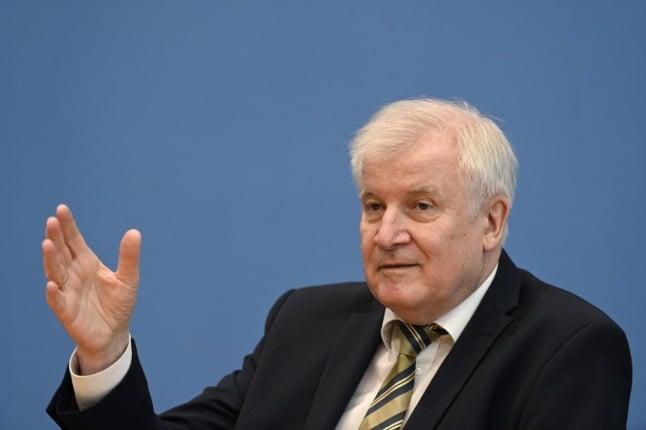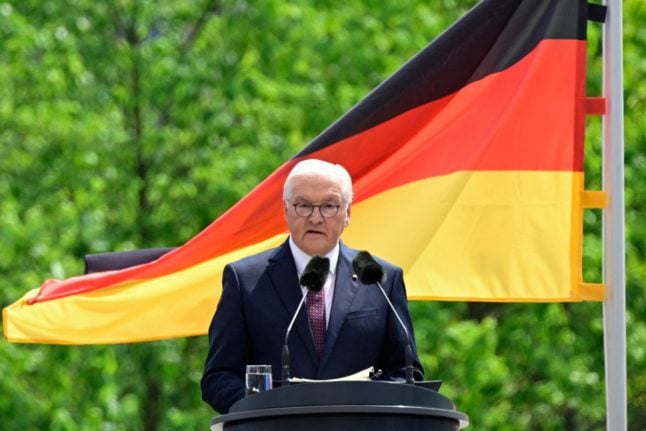The call came earlier this month, as Poland proposed building a 350 million-euro wall on its border with Belarus to keep migrants out.
The EU accuses the Belarusian authorities of flying migrants from the Middle East and Africa to Minsk and then sending them into the bloc on foot in retaliation for sanctions imposed over a crackdown on the opposition.
Police on Sunday broke up around 50 activists from the radical far-right group “The Third Way” (Der III. Weg), which had called for its members to gather to take action against migrants seeking to cross the border from Poland into Germany.
During the operation, police seized pepper spray, a bayonet, a machete and batons.
Asked whether Poland’s border wall was necessary, Germany’s Interior Minister Horst Seehofer said protecting frontiers was justifiable.
“It is legitimate for us to protect the external border in such a way that undetected border crossings are prevented,” he told the Bild am Sonntag newspaper on Sunday.
The surge in people crossing illegally over the EU’s eastern frontier with Belarus has placed major strains on member states unaccustomed to dealing with large-scale arrivals.
Seehofer also said Germany would increase controls on the German-Polish border and that 800 police had already been deployed.
“If necessary, I am ready to reinforce this even more,” he said.
According to figures from the German interior ministry, around 5,700 people have travelled over the border between Germany and Poland without an entry permit since the start of the year.
On Saturday, a suspected smuggler was taken into custody after 31 illegal migrants from Iraq were found in a van near the Polish border.
Seehofer wrote to his Polish counterpart Mariusz Kaminski last week to propose increasing joint patrols along the border with Poland in response to rising numbers of migrants.
Kaminski responded that Poland would offer its “full support” for such measures.
However, Seehofer also said last week Germany had no plans to close the border with Poland, adding that such a move would also be “legally questionable”.
READ ALSO: How Germany is proposing to tighten controls on the Polish border
Earlier this month, officials from countries including Poland, Lithuania and Greece argued for barriers along EU borders to counter efforts to weaponise migration.
Brussels has so far shied away from funding border walls for members states, insisting that the current legal framework only allows it to use EU budget funds for “border management systems”.



 Please whitelist us to continue reading.
Please whitelist us to continue reading.
Member comments